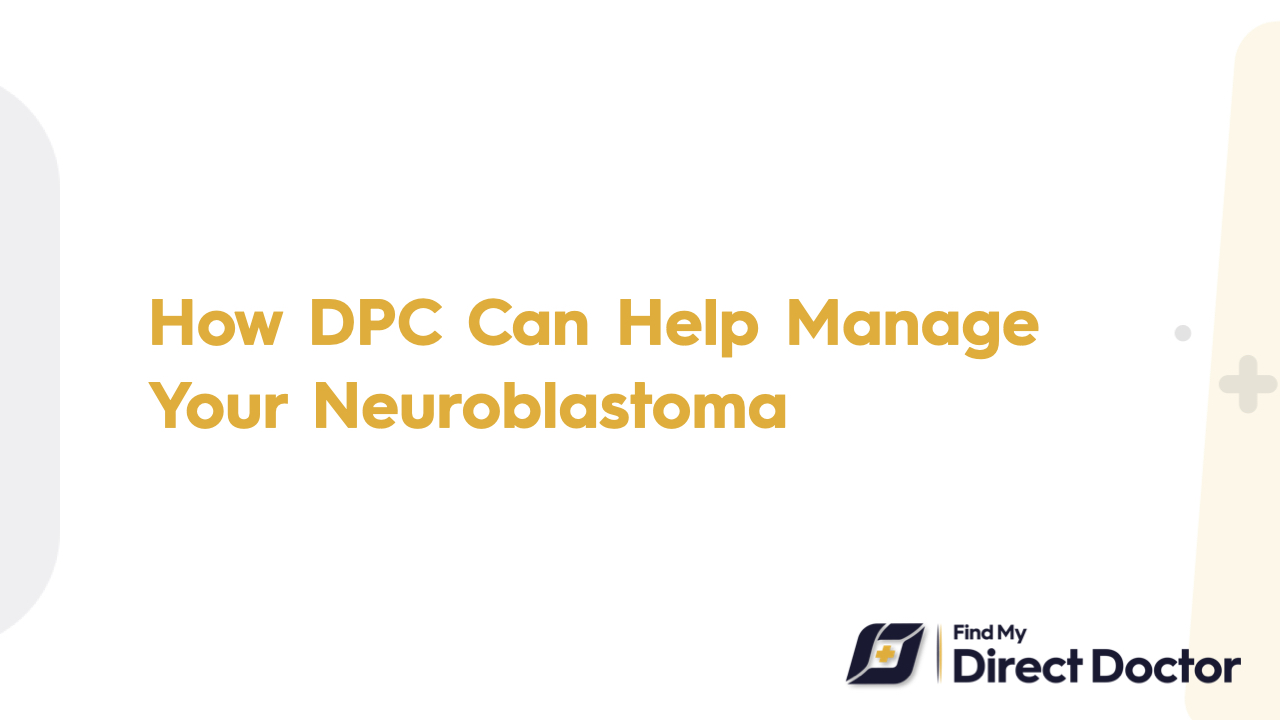



Infants and young children are most frequently affected by neuroblastoma, a kind of cancer. It develops in the neck, chest, belly, or pelvis, but it usually starts in the nerve tissue of the adrenal glands, which are situated above the kidneys. Depending on the tumor's location, symptoms may differ, but frequently include pain, exhaustion, fever, swelling or a palpable lump in the affected area, and occasionally, changes in blood pressure or skin color. Depending on where the tumor is growing, additional symptoms could include weight loss, lack of appetite, and trouble breathing or swallowing.

Patients with neuroblastoma may benefit from Direct Primary Care (DPC), which provides ongoing, individualized care during the course of treatment. DPC guarantees that a patient's general health is closely maintained, paying particular attention to side effects following therapies like chemotherapy, radiation, or surgery, even while it cannot take the place of specialized oncological care. To provide a holistic approach to care, DPC providers are available for routine check-ups, symptom management, and coordination with specialists and oncologists. Regular one-on-one consultations in DPC guarantee that the patient's demands are met as soon as possible and enable early diagnosis of issues.
The accessibility and individualized nature of DPC care are advantages for patients with neuroblastoma. Longer discussions with medical professionals are made possible by DPC, which facilitates the discussion of issues pertaining to the management and recuperation of neuroblastoma. Additionally, it facilitates direct communication between the patient and their healthcare team, which is crucial for handling the complicated side effects and symptoms of cancer treatment. By emphasizing preventative and holistic healthcare, DPC guarantees that patients with neuroblastoma receive all-encompassing assistance, enhancing their general health and quality of life throughout their fight with the illness.
Neuroblastoma treatment in DPC is extensively customized to meet each patient's specific requirements. In order to provide individualized guidance and support, providers take the time to learn about the patient's treatment plan, side effects, and personal health objectives. This could entail keeping an eye out for any issues, controlling discomfort, offering dietary advice, and offering emotional support. In addition to providing more regular visits to evaluate progress and modify care plans as necessary, DPC doctors collaborate closely with experts to guarantee that the patient's care is coordinated. This degree of individualized care makes it possible to control all facets of the patient's health throughout their course of therapy.
Previous Post